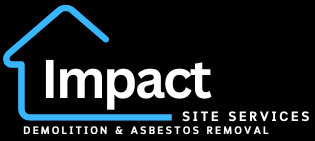Safe & Legal Asbestos Disposal in Newcastle
Asbestos, once hailed for its durability and heat resistance, is now widely recognised as a serious health hazard. If you’re dealing with asbestos in your home, business, or property in Newcastle, it’s essential to understand how to safely and legally manage its disposal. Mishandling asbestos can lead to dangerous exposure and hefty fines — but with the right approach, you can keep your environment safe and stay on the right side of the law.
This complete guide outlines everything you need to know about asbestos disposal in Newcastle: what asbestos is, where it’s found, how to handle it, and most importantly, where and how to dispose of it legally and safely.
What Is Asbestos?
Asbestos is a group of naturally occurring fibrous minerals used extensively in construction materials from the 1940s to the late 1980s. It was commonly found in insulation, roofing, cement sheeting, pipe lagging, vinyl floor tiles, and more. Despite being banned in Australia in 2003, asbestos still lingers in millions of older homes and buildings.
Health Risks of Asbestos Exposure
When asbestos-containing materials are disturbed, they can release microscopic fibres into the air. Inhalation of these fibres can lead to serious diseases such as:
- Asbestosis
- Mesothelioma
- Lung cancer
- Pleural disease
Due to these risks, asbestos must always be handled with extreme care and disposed of according to strict regulations.
Identifying Asbestos in Newcastle Properties
If your property was built before 1990, there’s a high chance it contains asbestos materials. Common locations include:
- Eaves and external cladding
- Bathroom and kitchen wall linings
- Vinyl flooring and tile underlay
- Roofing, gutters, and downpipes
- Insulation around hot water systems or pipes
Only a licensed professional like Impact Site Services can confirm the presence of asbestos through proper testing and analysis. Never attempt to identify asbestos visually.
Legal Requirements for Asbestos Removal in NSW
In New South Wales, the Environmental Protection Authority (EPA) and SafeWork NSW regulate asbestos handling and disposal. Here are key legal guidelines:
Who Can Remove Asbestos?
- Homeowners can legally remove less than 10 square metres of non-friable asbestos, but extreme caution is required.
- For more than 10 square metres or any friable asbestos (easily crumbled), you must hire a licensed asbestos removalist.
Legal Responsibilities Include:
- Proper containment and labeling of asbestos waste
- Use of personal protective equipment (PPE)
- Transportation in approved, sealed containers
- Disposal at licensed facilities only
Failure to comply can result in fines exceeding $7,500 for individuals or $15,000 for companies under NSW regulations.
How to Safely Remove and Dispose of Asbestos
Step 1: Engage a Licensed Asbestos Assessor or Removalist
- Find a certified removalist through SafeWork NSW’s database.
- They will assess the site, provide a removal plan, and manage the safe disposal.
Step 2: Preparation
- Notify neighbours and restrict access to the area.
- Use signage and barriers to control the workspace.
- Removalists will wear PPE and use specialised equipment.
Step 3: Removal and Containment
- Materials are carefully removed without breaking.
- Asbestos is wetted down to prevent fibre release.
- Waste is sealed in 6 mil thick plastic, double-bagged, and labeled as asbestos waste.
Step 4: Transportation to an Approved Facility
- Asbestos must be transported by a vehicle with appropriate waste transport certificates.
- Only certain waste disposal sites accept asbestos in Newcastle
💡 Tip: Always call ahead to confirm conditions, booking requirements, and fees before arriving.
Asbestos Transport Regulations
Asbestos waste must be transported:
- By a licensed contractor (if over 10 m²)
- In a sealed, leak-proof container or skip bin
- With an asbestos waste tracking document for large quantities
Vehicles must also be decontaminated after transport to avoid cross-contamination.
What You Should NEVER Do
- Never break or crush asbestos materials
- Never use household tools like sanders or drills
- Never dispose of asbestos in general waste bins
- Never attempt to clean asbestos dust with a vacuum cleaner
- Never transport uncovered asbestos in your vehicle
Doing any of the above can put your health at serious risk and result in legal consequences.
Costs of Asbestos Disposal in Newcastle
Pricing can vary based on:
- Quantity of asbestos
- Whether it’s friable or bonded
- Distance to the disposal site
- Removalist’s fees
Expect to pay:
- $300–$800 for small domestic removal jobs
- $50–$150 per square metre for professional removal
- $30–$150 per tonne in disposal fees
While DIY removal might seem cheaper, hiring a professional is always safer and legally compliant.
Final Thoughts: Prioritise Safety, Comply with the Law
Asbestos disposal isn’t just about getting rid of old materials — it’s about protecting your health, your family, your neighbours, and the wider community. With proper planning, licensed professionals, and a solid understanding of Newcastle’s disposal regulations, you can tackle asbestos issues responsibly and safely.
If in doubt, always consult a licensed asbestos removalist in Newcastle or contact your local council’s environmental health department.

